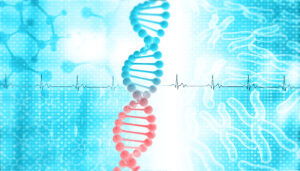Longevity Men’s Health Blood Test
$199.00
The Longevity Men’s Health Blood Test includes assessments for cortisol, testosterone, and prostate health.
Cortisol:
Purpose: Measures cortisol levels, which is the primary stress hormone. Cortisol helps regulate metabolism, blood sugar, and stress response.
Why it’s important: Imbalanced cortisol levels (either too high or too low) can indicate issues like chronic stress, adrenal gland disorders, or Cushing’s syndrome.
Testosterone Test:
Purpose: Measures total and/or free testosterone levels.
Why it’s important: Testosterone is crucial for male reproductive and sexual health, muscle mass, bone density, and mood regulation. Low testosterone levels (hypogonadism) can lead to issues such as fatigue, depression, reduced libido, and loss of muscle mass.
Prostate-Specific Antigen (PSA) Test:
Purpose: Measures PSA levels in the blood to screen for prostate issues.
Why it’s important: Elevated PSA levels can indicate prostate enlargement, inflammation, or prostate cancer. PSA testing is an important tool for early detection of prostate cancer, particularly in men over 50.
8 Total Analytes In This Test
Cortisol, Sex Hormone Binding Globulin (SHBG), Testosterone, Free Testosterone, % Free Testosterone, % Bioavailable Testosterone, Prostate Cancer Screening: Prostate Specific Antigen (PSA), % Free PSA
Description
The Longevity Men’s Health Blood Test includes assessments for cortisol, testosterone, and prostate health.
Cortisol:
Purpose: Measures cortisol levels, which is the primary stress hormone. Cortisol helps regulate metabolism, blood sugar, and stress response.
Why it’s important: Imbalanced cortisol levels (either too high or too low) can indicate issues like chronic stress, adrenal gland disorders, or Cushing’s syndrome.
Testosterone Test:
Purpose: Measures total and/or free testosterone levels.
Why it’s important: Testosterone is crucial for male reproductive and sexual health, muscle mass, bone density, and mood regulation. Low testosterone levels (hypogonadism) can lead to issues such as fatigue, depression, reduced libido, and loss of muscle mass.
Prostate-Specific Antigen (PSA) Test:
Purpose: Measures PSA levels in the blood to screen for prostate issues.
Why it’s important: Elevated PSA levels can indicate prostate enlargement, inflammation, or prostate cancer. PSA testing is an important tool for early detection of prostate cancer, particularly in men over 50.
8 Total Analytes In This Test
Cortisol, Sex Hormone Binding Globulin (SHBG), Testosterone, Free Testosterone, % Free Testosterone, % Bioavailable Testosterone, Prostate Cancer Screening: Prostate Specific Antigen (PSA), % Free PSA
Analytes Tested
87 Analytes Tested
- ALBUMIN
- ALBUMIN/GLOBULIN CALCULATED
- ALKALINE PHOSPHOTASE
- ALT
- AST
- BASO#
- BASO%
- BILIRUBIN DIRECT
- BILIRUBIN TOTAL
- BUN
- BUN/CREAT CALCULATED
- CALCIUM
- CARBON DIOXIDE
- CHLORIDE
- CHOLESTEROL/HDL CALCULATED
- CHOLESTEROL (TOTAL)
- CORTISOL
- CREATININE
- CRP, HS
- D-DIMER
- DHEA-S
- DIHYDROTESTOSTERONE (DHT)
- EGFR
- EO#
- EO%
- ESTRADIOL
- ESTRIOL
- ESTRONE
- FERRITIN
- FOLATE
- FREE T3
- FREE T4
- FREE TESTOSTERONE
- GGT
- GLUCOSE
- HBA1C
- HCT
- HDL
- FSH
- HGB
- LH
- HOMOCYSTEINE
- IGF-1
- INSULIN
- IRON
- LDH
- LDL CALCULATED
- LYMPH#
- LYMPH%
- MAGNESIUM
- MCH
- MCHC
- MCV
- MONO#
- MONO%
- MPV
- NEUT#
- NEUT%
- PSA
- FREE PSA
- % FREE PSA
- PHOSPHOROUS
- PLT
- POTASSIUM
- PREGNENOLONE
- PROGESTERONE
- PROTEIN, TOTAL
- RBC
- RDW
- RDW-SD
- REVERSE T3
- % SATURATED TRANSFERRIN
- SHBG
- SODIUM
- TESTOSTERONE
- TESTOSTERONE, FREE
- BIOAVAILABLE TESTOSTERONE
- TIBC
- TPO ANTIBODY
- TRANSFERRIN
- TRIGLYCERIDES
- TSH
- URIC ACID
- VITAMIN B 12
- VITAMIN D
- VLDL CALCULATED
- WBC
Anemia
Anemia is a medical condition characterized by a decrease in the number of red blood cells or a decrease in the amount of hemoglobin, an iron-rich protein that carries oxygen in the blood. This can lead to a reduction in the amount of oxygen delivered to the body’s tissues, resulting in symptoms such as fatigue, weakness, shortness of breath, and pale skin. Anemia can be caused by a variety of factors, including blood loss, poor nutrition, chronic diseases, and inherited conditions. The specific type of anemia is usually determined through a combination of medical history, physical examination, and laboratory tests, including a Complete Blood Count (CBC) and iron studies. Treatment for anemia depends on the underlying cause and may include dietary changes, supplements, and medications.
Biomarkers tested are:
- Complete Blood Count (CBC)
- Ferritin
- Folic Acid
- Transferrin
- % Transferrin
- Total Iron Binding Capacity (TIBC)
- Vitamin B12
Comprehensive Metabolic Panel (CMP)
A comprehensive metabolic panel (CMP) is a blood test that measures a variety of substances in the blood, including electrolytes, glucose, proteins, and liver and kidney function tests. The CMP is commonly used to evaluate overall health and to screen for a variety of medical conditions, such as diabetes, liver disease, and kidney disease.
The CMP typically includes the following tests:
- Albumin
- Albumin/Globulin Ratio (calc)
- Alkaline Phosphatase (ALP)
- ALT (Alanine Aminotransferase)
- AST (Aspartate Aminotransferase)
- Bilirubin Total
- Bilirubin Direct
- Blood Urea Nitrogen (BUN)
- Calcium
- Carbon Dioxide
- Chloride
- Creatinine
- EGFR (calc)
- Iron
- Glucose
- Protein, Total
- Potassium
- Sodium
The results of a CMP can help healthcare providers diagnose and monitor a variety of medical conditions, such as diabetes, liver disease, and kidney disease. Abnormal levels in any of the CMP tests may indicate an underlying medical condition, and additional tests or evaluation may be needed to determine the cause and appropriate treatment.
It’s important to discuss the results of a CMP with a healthcare provider, who can provide the necessary context and recommend appropriate follow-up if needed.
Complete Blood Count (CBC)
A complete blood count (CBC) is a blood test that measures the different cells in the blood, including red blood cells, white blood cells, and platelets. The CBC provides important information about a person’s overall health and can help diagnose a variety of medical conditions, including anemia, infections, and blood disorders.
The following components of the blood are measured during a CBC:
- Red blood cells (RBCs) – measure the number and size of red blood cells, which carry oxygen to the body’s tissues.
- Hemoglobin – measures the amount of oxygen-carrying protein in the blood.
- Hematocrit – measures the proportion of red blood cells to the total volume of blood.
- Mean corpuscular volume (MCV) – measures the average size of red blood cells.
- Mean corpuscular hemoglobin (MCH) – measures the average amount of hemoglobin in red blood cells.
- Mean corpuscular hemoglobin concentration (MCHC) – measures the average concentration of hemoglobin in red blood cells.
- Red Blood Cell Distribution Width (RDW) is a blood test that measures the variation in size and shape of red blood cells.
- Red Blood Cell Distribution Width-Standard Deviation (RDW-SD) is a blood test that measures the variation in size and shape of red blood cells, with a focus on the degree of variation in width.
- Mean Platelet Volume (MPV) is a blood test that measures the average size of platelets in the blood.
- Platelets – measure the number of small cells that help blood to clot.
- White blood cells (WBCs) – measure the number of different types of white blood cells, which play a role in fighting infections.
- Lymphocytes % is a blood test that measures the percentage of lymphocytes, a type of white blood cell, in the blood.
- Monocytes % is a blood test that measures the percentage of monocytes, a type of white blood cell, in the blood.
- Neutrophils % is a blood test that measures the percentage of neutrophils, a type of white blood cell, in the blood.
- Eosinophils % is a blood test that measures the percentage of eosinophils, a type of white blood cell, in the blood. Eosinophils play a key role in the immune system’s response to parasitic infections and allergic reactions.
- Basophils % is a blood test that measures the percentage of basophils, a type of white blood cell, in the blood. Basophils play a role in the immune system’s response to allergies and parasitic infections.
- Lymphocytes # is a blood test that measures the absolute number of lymphocytes, a type of white blood cell, in the blood.
- Monocytes # is a blood test that measures the absolute number of monocytes, a type of white blood cell, in the blood.
- Neutrophils # is a blood test that measures the absolute number of neutrophils, a type of white blood cell, in the blood.
- Eosinophils # is a blood test that measures the absolute number of eosinophils, a type of white blood cell, in the blood.
- Basophils # is a blood test that measures the absolute number of basophils, a type of white blood cell, in the blood.
A healthcare provider can interpret the results of a CBC and make recommendations for treatment or lifestyle changes as needed. The normal range for the results of a CBC may vary depending on the laboratory that performs the test. It is important to keep in mind that the results of a CBC can be influenced by factors such as age, gender, and overall health.
Cholesterol Test or Lipid Panel
The lipid panel, also known as a cholesterol test or lipid profile, is a blood test that measures the levels of different types of fats (lipids) in the blood. These include:
- Total cholesterol: This is the overall amount of cholesterol in the blood.
- LDL cholesterol: This is the “bad” cholesterol that contributes to the build-up of plaque in the arteries, increasing the risk of heart disease.
- HDL cholesterol: This is the “good” cholesterol that helps remove plaque from the arteries and reduce the risk of heart disease.
- Triglycerides: These are a type of fat in the blood that can increase the risk of heart disease if levels are high.
The lipid panel is usually performed as part of a routine health screening, or to monitor people who are at risk of developing heart disease. The results of the lipid panel, along with other factors such as age, family history, and lifestyle, can help healthcare providers determine a person’s risk of developing heart disease and make recommendations for treatment or lifestyle changes.
Normal cholesterol levels vary, but total cholesterol levels should be less than 200 mg/dL, LDL cholesterol levels should be less than 130 mg/dL, HDL cholesterol levels should be 40 mg/dL or higher, and triglyceride levels should be less than 150 mg/dL.
HbA1C Blood Test
HbA1c (Glycated hemoglobin) is a blood test that measures the average blood sugar level over the past two to three months. The test provides a more long-term view of a person’s blood sugar control than a simple blood glucose test, which only measures the blood sugar level at a single point in time.
HbA1c is formed when glucose in the blood binds to hemoglobin, a protein in red blood cells that carries oxygen throughout the body. The higher a person’s blood sugar level over time, the more glucose is bound to hemoglobin, and the higher the HbA1c level will be.
A HbA1c test is used to monitor diabetes control and to diagnose diabetes. The test is typically done two to four times a year for people with diabetes. Normal HbA1c levels for people without diabetes are typically below 5.7%, while levels for people with diabetes are typically higher, between 7% and 8%. A healthcare provider can use the results of a HbA1c test to adjust treatment and make recommendations for lifestyle changes as needed.
Heart Health
Heart health refers to the overall well-being and proper functioning of the heart. The heart is a vital organ that pumps blood throughout the body, providing oxygen and nutrients to the cells and organs.
Maintaining good heart health is essential for overall health and wellness. Some steps that can help support heart health include:
- Eating a healthy diet that is low in saturated and trans fats, and high in fruits, vegetables, and whole grains
- Maintaining a healthy weight
- Engaging in regular physical activity
- Not smoking and avoiding exposure to secondhand smoke
- Limiting alcohol consumption
- Managing stress and getting enough sleep
- Controlling high blood pressure, cholesterol, and diabetes
If you have a family history of heart disease, are at risk for heart disease due to other health conditions, or have symptoms such as chest pain, shortness of breath, or a rapid or irregular heartbeat, it is important to speak with a healthcare professional. Early detection and treatment of heart disease can help prevent or slow progression and minimize the risk of serious complications, such as heart attack and stroke.
Hormone Panel
A hormone blood test is a laboratory test that measures the levels of specific hormones in the blood. Hormones are chemical messengers produced by various glands and tissues in the body, which regulate a wide range of physiological processes, such as growth and development, metabolism, and reproductive function. Hormone blood tests may be used to diagnose and monitor a variety of medical conditions related to hormonal imbalances, such as thyroid disorders, diabetes, and reproductive disorders. The type of hormone blood test ordered will depend on the specific hormone being tested and the medical condition being evaluated. It’s important to talk to a healthcare provider about any concerns related to hormone levels and whether a hormone blood test is necessary or appropriate.
Hormones Tested:
- CORTISOL
- DHEA-S
- DIHYDROTESTOSTERONE (DHT)
- ESTRADIOL
- ESTRIOL
- ESTRONE
- FREE T3
- FREE T4
- FSH
- LH
- IGF-1
- INSULIN
- PREGNENOLONE
- PROGESTERONE
- REVERSE T3
- SHBG
- TESTOSTERONE
- TESTOSTERONE, FREE
- TPO ANTIBODY
- TSH
Magnesium
A magnesium blood test is a medical test that measures the level of magnesium in the blood. Magnesium is an important electrolyte that plays a role in many biological processes, including muscle and nerve function, heart rhythm, and bone health. The test is typically ordered by a healthcare provider when there is a suspicion of a magnesium deficiency or excess, or when monitoring the progress of a patient with a known magnesium-related condition.
The test involves taking a blood sample, usually from a vein in the arm, which is then sent to a laboratory for analysis. The results of the test are reported as a concentration of magnesium in the blood, typically measured in milligrams per deciliter (mg/dL) or millimoles per liter (mmol/L).
Normal magnesium levels in the blood are typically between 1.7 to 2.2 mg/dL (0.7 to 0.9 mmol/L). Low levels of magnesium in the blood, also known as hypomagnesemia, can be caused by a variety of factors including malnutrition, alcoholism, kidney disease, and medications such as diuretics. High levels of magnesium in the blood, also known as hypermagnesemia, are rare but can be caused by kidney disease, excessive use of magnesium-containing medications or supplements, or certain genetic disorders.
It is important to interpret the results of a magnesium blood test in the context of a patient’s overall health and medical history, and in consultation with a healthcare provider.
Prostate Cancer Screening
A PSA blood test is a common screening test used to measure the levels of prostate-specific antigen (PSA) in the bloodstream. PSA is a protein produced by the cells of the prostate gland in males. A free PSA blood test is a variation of the regular PSA test that measures the percentage of unbound or free prostate-specific antigen (PSA) in the blood. The free PSA test is often used in conjunction with the total PSA test to provide additional information about the risk of prostate cancer.
The test involves taking a blood sample and measuring the amount of PSA and free PSA present. Here are some key points related to PSA blood testing:
-
Screening for Prostate Conditions: The PSA blood test is primarily used as a screening tool for prostate conditions, including prostate cancer. Elevated levels of PSA can indicate potential issues with the prostate, such as inflammation, infection, benign prostatic hyperplasia (BPH), or prostate cancer. However, it’s important to note that an elevated PSA level does not necessarily mean that prostate cancer is present, as there can be other non-cancerous reasons for elevated PSA levels.
-
Prostate Cancer Detection: PSA testing can help detect prostate cancer at an early stage when treatment may be more effective. However, the PSA test is not a definitive diagnostic test for prostate cancer. If PSA levels are elevated or concerning, further diagnostic tests, such as a digital rectal exam (DRE) and prostate biopsy, may be recommended to confirm the presence of prostate cancer.
-
Total PSA vs. Free PSA: The total PSA test measures the total amount of PSA in the blood, including both the bound (attached to other proteins) and unbound (free) forms. However, not all elevated PSA levels indicate prostate cancer, as certain non-cancerous conditions can also cause an increase. To better assess the risk of prostate cancer, the free PSA test is sometimes used to measure the percentage of PSA that is not bound to proteins.
-
Free PSA to Total PSA Ratio: The free PSA test result is often reported as a percentage or a ratio, comparing the amount of free PSA to the total PSA level. A lower percentage of free PSA may indicate a higher risk of prostate cancer, while a higher percentage of free PSA may suggest a lower risk.
-
Risk Stratification: The free PSA test is particularly useful when total PSA levels are in the intermediate range (typically between 4 and 10 ng/mL). By considering the free PSA percentage or ratio along with the total PSA level, healthcare providers can further assess the likelihood of prostate cancer and determine the need for additional diagnostic tests, such as a prostate biopsy.
-
Age and Risk Factors: The decision to undergo PSA screening should be based on individual factors, including age, family history of prostate cancer, and overall health. Guidelines for PSA screening may vary, but generally, discussions about PSA testing typically begin around the age of 50 for most men. However, for individuals at higher risk, such as those with a family history of prostate cancer or African American men, discussions may start earlier, typically around the age of 45.
Limitations and Controversies: PSA testing has limitations, including the potential for false positives or false negatives. PSA levels can be influenced by various factors, such as age, prostate size, recent sexual activity, infection, inflammation, or recent prostate procedures. There is ongoing debate regarding the benefits and risks of routine PSA screening, as it may lead to over diagnosis and over treatment of prostate cancer. While the free PSA test can provide additional information, it is not definitive for diagnosing prostate cancer. Other factors, such as age, family history, digital rectal exam (DRE) findings, and imaging studies, may also be considered when evaluating the risk of prostate cancer.
Shared Decision-making: It is important for individuals to engage in shared decision-making with their healthcare provider regarding PSA screening. This involves discussing the potential benefits, limitations, and risks of PSA testing, as well as considering individual preferences, values, and risk factors.
If you have questions or concerns about PSA screening or prostate health, it is recommended to consult with a healthcare professional, such as a urologist or primary care physician. They can provide personalized guidance, discuss the pros and cons of PSA testing, and help determine the most appropriate approach based on your individual circumstances.
Testosterone Panel
A testosterone panel is a set of blood tests that measure various aspects of testosterone levels in the body. It provides comprehensive information about the total testosterone level, as well as other related parameters that help assess hormonal balance and potential abnormalities. Here are some common components of a testosterone panel:
-
Total Testosterone: The total testosterone test measures the overall amount of testosterone in the bloodstream. It reflects both the free (unbound) testosterone and testosterone bound to proteins like sex hormone-binding globulin (SHBG) and albumin.
-
Free Testosterone: The free testosterone test measures the amount of testosterone that is not bound to proteins and is therefore available to exert its biological effects on target tissues. Free testosterone represents a small fraction of the total testosterone and is considered the bioactive form.
-
Bioavailable Testosterone: The bioavailable testosterone test measures the amount of testosterone that is not bound to SHBG but is bound to albumin. It represents a portion of the testosterone that is readily available for interaction with target tissues.
-
SHBG (Sex Hormone-Binding Globulin): SHBG is a protein that binds to testosterone and regulates its availability for biological activity. Measuring SHBG levels can help evaluate the balance between bound and free testosterone.
Thyroid Health
Maintaining good thyroid health is important for overall health and well-being. Here are some tips to support thyroid health:
-
Eat a healthy, balanced diet: A diet rich in nutrients, including iodine and selenium, can support thyroid function. Good sources of iodine include seaweed, fish, and dairy products, while selenium-rich foods include Brazil nuts, fish, and meat.
-
Exercise regularly: Regular physical activity can help support overall health, including thyroid function.
-
Get enough rest: Adequate sleep and rest are important for overall health, and can help support healthy thyroid function.
-
Manage stress: Chronic stress can affect thyroid function, so finding ways to manage stress, such as through relaxation techniques or exercise, can be beneficial.
-
Avoid smoking and excessive alcohol consumption: Both smoking and excessive alcohol consumption can have negative effects on thyroid health.
-
Monitor your thyroid function: If you have risk factors for thyroid problems, such as a family history or certain medical conditions, talk to your healthcare provider about monitoring your thyroid function with blood tests.
It’s important to note that thyroid health is complex and influenced by many factors, so it’s important to work with a healthcare provider to develop a personalized plan for maintaining good thyroid health.
Uric Acid
Uric acid is a waste product that is produced by the body during the breakdown of purines, which are natural substances found in many foods and in the body’s cells. Most uric acid is filtered out of the blood by the kidneys and eliminated from the body in urine. However, if the body produces too much uric acid or the kidneys are unable to eliminate it properly, the level of uric acid in the blood can become too high, leading to a condition called hyperuricemia.
Hyperuricemia can cause urate crystals to form in joints, leading to a painful condition called gout. In addition, high levels of uric acid in the blood can increase the risk of developing kidney stones and may also be a risk factor for cardiovascular disease.
A blood test can measure the level of uric acid in the blood. The normal range for uric acid levels in the blood can vary depending on the laboratory, but typically falls between 3.4 and 7.2 milligrams per deciliter (mg/dL) for men, and between 2.4 and 6.0 mg/dL for women. High levels of uric acid in the blood are typically above 7.2 mg/dL for men and above 6.0 mg/dL for women.
Treatment for high uric acid levels may include lifestyle changes such as reducing purine-rich foods and increasing fluid intake, as well as medications such as allopurinol, which can help lower uric acid levels. It is important to work with a healthcare provider to determine the best course of treatment based on individual medical history and circumstances.
Vitamin Deficiency
Vitamin deficiencies occur when a person doesn’t consume enough of a particular vitamin or the body doesn’t properly absorb or utilize the vitamin. Some common vitamin deficiencies include:
-
Vitamin D deficiency: can lead to weakened bones, increased risk of fractures, and other health problems.
-
Vitamin B12 deficiency: can cause anemia, nerve damage, and other health problems.
-
Vitamin C deficiency: can lead to scurvy, a condition characterized by fatigue, weakness, and other symptoms.
-
Vitamin A deficiency: can cause vision problems, weakened immunity, and other health issues.
-
Folate (vitamin B9) deficiency: can lead to anemia, birth defects, and other health problems.
-
Vitamin E deficiency: can cause nerve damage, muscle weakness, and other health issues.
Vitamin deficiencies can be diagnosed through blood tests and may be treated with vitamin supplements or changes to the diet. It’s important to talk to a healthcare provider if you suspect a vitamin deficiency, as untreated deficiencies can have serious health consequences.
Specimen Requirements
- SST tube of blood, serum
- Lavender top-EDTA, whole blood
Turn Around Time
24 – 72 hours
Price For Test
Price: $499






